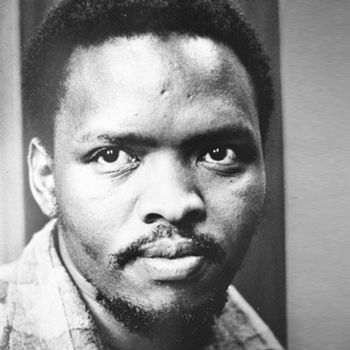DOCTOR OF EDUCATION (HONORIS CAUSA)

Stephen Bantu Biko died in detention on 12 September 1977, a martyr to the struggle against apartheid. He was the founder of the Black Consciousness movement, which had as its aim the liberation of black people by restoring their sense of pride and dignity in themselves and their culture; eradicating self-images of worthlessness and victimhood imposed by Bantu Education.
His death at the age of 30 stunned the world. More than 15 000 mourners attended his funeral. Thirteen Western states sent representatives. The funeral became a protest rally and speakers warned the government that while Biko had campaigned for peaceful change, his death had pushed people further towards violence.
Biko had been arrested on 18 August 1977 and detained in Port Elizabeth without trial. The cause of death was established as brain damage but the truth of how the fatal injury occurred did not emerge at the inquest. It was revealed, however, that he had been kept naked and manacled, and treated brutally by the security police. During his lifetime, Biko was never arrested for inciting violence against the State, never formally charged with this offence, and never convicted of any crime.
Biko was born in King William's Town in 1946. He enrolled at the University of Natal medical school in 1966 and became a member of the National Union of South African Students (NUSAS). On the grounds that, in spite of their good intentions, their "liberalism" was more likely to perpetuate oppression than overcome it, he and other black NUSAS members broke away and formed the South African Students' Organisation (SASO).
His leadership qualities were quickly recognised - he was confident, articulate and possessed powerful personal magnetism - and he was elected SASO's first President. The government initially welcomed SASO's formation as being in harmony with the racism of apartheid, but Biko made his organisation's position in that regard clear when he said: "We are looking forward to a non-racial, just and egalitarian society in which colour, creed and race shall form no point of reference."
Increased political activity ended his studies in 1972 and the following year he was banned and restricted to King William's Town. There he founded the Eastern Cape branch of Black Community Programmes. In 1975 he was prohibited from working for the organisation and in 1976 was instrumental in founding the Zimele Trust Fund. The authorities stepped up their persecution the following year: Biko was detained for 101 days under the Terrorism Act and then released without being charged.
Biko's mission was to serve as a liberator from repression. He founded the Black Consciousness movement on the idea that domination operates through belief - external values become internalised and the dominated become complicit in their own domination. In 1971 he wrote: "Black consciousness is … to make us look at ourselves and see ourselves, not in terms of what we have been taught through the absolute values of white society, but with new eyes. It is a call … to see the innate value in us, in our institutions, in our traditional outlook on life and in our own worth as people. The logic behind it is that if you see yourself as a person in your own right there are certain basic questions that you must ask about the conditions under which you live."
For Biko, education and emancipation were inextricably linked, and the central aim of education is to cultivate humanity and empower people to take their destiny into their own hands. Central to his vision was the idea of cultural evolution and a dynamic casting-off of the "mind-forged manacles" which incarcerate the oppressed within a prison of self-imposed inferiority. "The most potent weapon in the hands of the oppressor is the mind of the oppressed."
Biko's focus on psychological liberation profoundly changed the whole mood and style of the liberation struggle. His vision fostered a bold determination to fight apartheid, especially among generations of young students. It provided the inspiration for the events of the 1980s which made it increasingly impossible for apartheid to survive.
It is a privilege for the University of Port Elizabeth to confer the posthumous degree Doctor Educationis honoris causa on Steve Biko. A son of the Eastern Cape, he gave his life to the struggle for liberation from oppression. He was the chief architect of a movement that restored dignity and pride to those whose identity had been shattered by colonialism and apartheid. We honour him especially for his vision of how education can, and should, contribute to the development of a non-racial, just and egalitarian society by emancipating the mind and building a sense of self-worth and humanity.